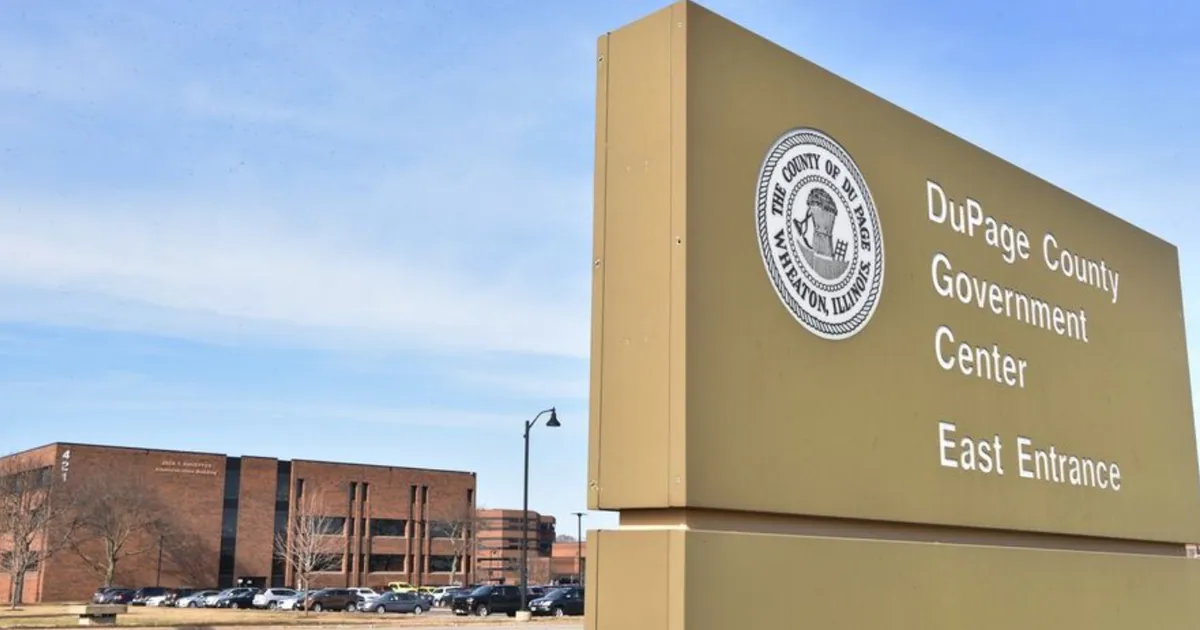Copyright dailymail

Bill Gates says his latest push is all about inclusion. The billionaire philanthropist who co-founded Microsoft now wants every person on Earth to have a digital identity - a code that unlocks access to money, health care and government services. But critics warn that his plan, wrapped in the language of progress, could open the door to something far darker. In September, the Gates Foundation poured $10million into building a universal digital ID system supported by an artificial-intelligence hub in Senegal - part of a $200 million global drive to roll out similar schemes by 2028. Senegal's president, Bassirou Diomaye Faye, hailed the deal as the dawn of a 'new era.' He called online IDs the path to 'a more inclusive and prosperous future' for his roughly 18 million citizens. Smiles and handshakes followed at the UN General Assembly. But beneath the photo ops, critics see danger - a world in which aid money and goodwill mask a system of surveillance, exclusion and control. In a recent blog post, Gates described Digital Public Infrastructure (DPI) - the network of digital IDs, payment systems and data platforms - as the next great leap for humanity. 'These systems and platforms are to the digital world what roads, bridges and power lines are to the physical one - an underlying structure that connects people, data and money online,' he wrote. The IDs themselves can be stored on a physical card, a mobile phone or in an online system that verifies users through a fingerprint or iris scan. Though, critics warn that such technology could eventually lead to humans being tagged with microchips or even tiny nanocrystals - dubbed 'quantum dot tattoos' - embedded in the skin. Gates has argued that DPI can help poor nations leapfrog into modernity, giving citizens faster access to services, fairer welfare and smoother governance. His showcase example is India's Aadhaar system - a 12-digit biometric ID linking fingerprints and iris scans to government records. Gates called it 'a secure way for over a billion Indians to prove their identity, open bank accounts and receive benefits directly.' But the reality has been grim in places. In India's poorest regions, thousands have been cut off from welfare after struggling with fingerprint scanners or faulty databases, according to the Indian parliament's Public Accounts Committee. In Jharkhand, Mangri Pahnain and her son were left penniless when her pension stopped because her fingerprints failed to authenticate. Researchers documented at least a dozen starvation deaths tied to Aadhaar glitches. Economist Jean Dreze estimated that in Jharkhand alone, 760,000 food ration cards were canceled because they were not linked to Aadhaar. In one case highlighted by Privacy International, a woman died after being denied hospital care because she didn't have an Aadhaar card. Similar tragedies have emerged elsewhere. In Uganda, the Ndaga Muntu ID system locked the elderly and sick out of care when biometric systems failed. In Kenya, under the government's Huduma Namba program, ethnic minorities such as the Nubians and Somalis were forced to pay extra or travel long distances to enroll. Some were excluded entirely by Kenya's government as the two peoples have long struggled to access valid paperwork in the country. Even when digital IDs function perfectly, experts warn they can pave the way for mass surveillance. Once governments centralize biometric data, it becomes easy for those systems to be expanded or abused. What begins as welfare verification can morph into law enforcement, migration control or political monitoring. As the American Civil Liberties Union cautions, 'No system is immune to failure. We have seen time and again governments and tech giants fail to protect people's personal data.' And when digital IDs merge with AI-driven tracking tools, the risks escalate. 'Creating a system through which the government can track us any time we use our driver's license is an Orwellian nightmare,' ACLU analyst Jay Stanley said in June. Some of the sharpest criticism comes from someone who was formerly within Gates' own orbit. Elizabeth Renieris, a digital-rights lawyer and ethicist, resigned from the ID2020 Alliance - a Gates-linked initiative - in 2020, accusing it of 'techno-solutionism' and blind faith in blockchain. She said ID2020's focus on 'immunity passports' during COVID-19 risked eroding privacy, freedom of movement and even freedom of assembly. 'I could no longer describe what ID2020's mission is with any confidence,' she wrote in her resignation letter. Her departure exposed a deep split between technologists and civil liberties advocates - a struggle over who controls the world's data and how much privacy citizens must surrender for convenience. Gates' vast influence has made him a lightning rod for suspicion. Through his $77 billion foundation, he funds everything from vaccines to agriculture to AI - and now, digital identity. His reach has sparked backlash from both the political left and right. Indian activist Vandana Shiva accused Gates of 'philanthro-imperialism' - using charity to impose his own vision on billions. Before becoming US health secretary, Robert F Kennedy Jr blasted Gates for exploiting crises to impose 'top-down totalitarian controls' on society. 'Climate and pollution issues are being exploited by the World Economic Forum and Bill Gates,' Kennedy said in a May 2023 radio interview with Kim Iversen. 'The same way that COVID was exploited to clamp down totalitarian controls on society.' Gates has also become a lightening rod for conspiracy theorists and their baseless claims about governments tagging their citizens with 'microchip' digital IDs. Everyone from Alex Jones to David Icke have warned of global elites using climate change, immigration, and pandemics as cover to roll out digital IDs and control populations in what has been called the 'Great Reset.' Some mainstream watchdogs share a fear that global ID systems could evolve into a unified surveillance web, merging private and state databases into one. Gates has insisted those fears are exaggerated. In his blog, he argued that 'properly designed DPI includes safeguards against misuse and even enhances privacy.' Advocates point out that nearly 4 billion people already have some form of digital ID - a figure expected to reach 6.5 billion by 2026. They highlight success stories such as Estonia's e-ID, widely regarded as the world's most secure and efficient digital government. Citizens use it for banking, voting and healthcare - all with strong encryption and citizen oversight. Brazil's Pix payment network, another DPI success story, has brought millions into the financial system and cut transaction costs dramatically. Dozens of governments - including the EU, US and UK - are developing national or cross-border digital ID systems. Even in India, where Aadhaar once faced outrage, reforms have improved privacy protections. The nation's Supreme Court restricted how the ID can be used and forced officials to tighten data security laws. 'The future is digital,' Gates wrote on his blog. 'Countries that invest in strong digital systems reap major benefits - faster and fairer access to services, better healthcare, economic inclusion and improved crisis response.' The Gates Foundation declined the Daily Mail's requests for comment and an interview. But for his critics, the danger is not just theoretical - it's human. It's the pensioner denied food because a fingerprint failed; the patient turned away from hospital care; the mother forced to give birth without aid because a server crashed. In country after country, the poorest and most vulnerable - the very people Gates says he wants to help - are among the first to suffer when these systems break down. And even when they work, they give governments enormous power. A single switch - the revocation of an ID - can erase a person's ability to work, travel or receive money. Those opposed to the system believe that is too much control for any state, let alone one built in partnership with billion-dollar tech firms and global philanthropies. As AI grows more advanced, privacy experts warn of a new kind of AI Big Brother capable of monitoring billions at once. A system that knows everything, forgets nothing, and never sleeps.



